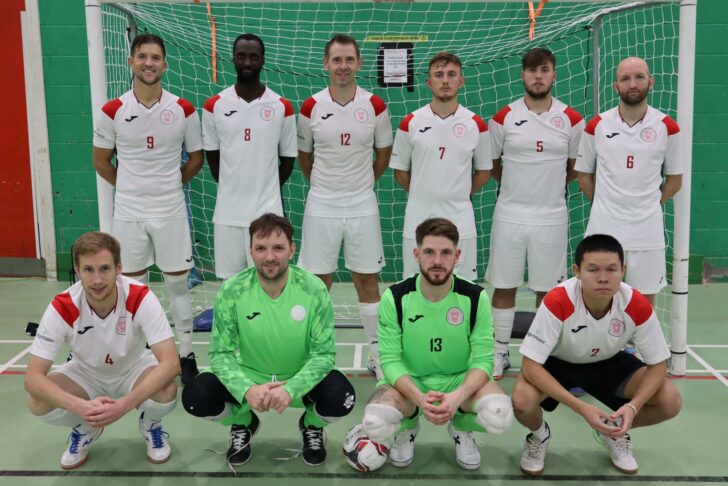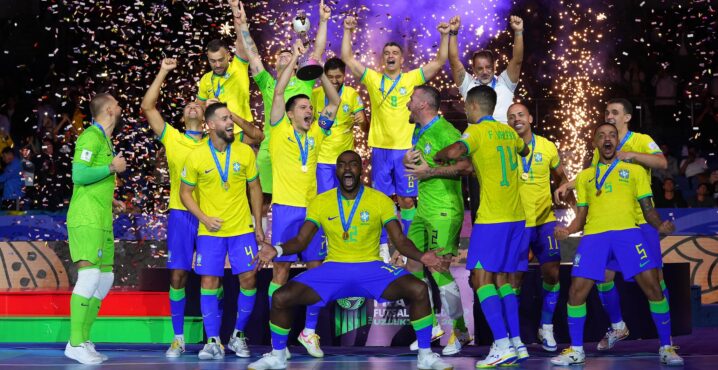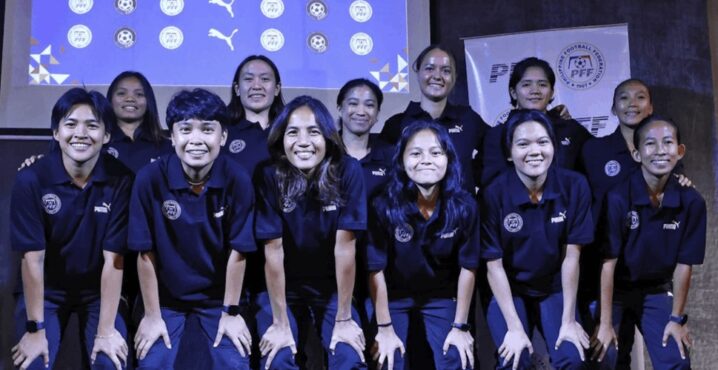Estimated reading time:5 minutes, 27 seconds
Unraveling the Futsal Conundrum: Examining the FA’s Decisions Beyond Funding Disparities
In response to a recent article from Sky Sports focusing on the England Men’s Deaf Futsal team, which we have conveniently linked at the end of this piece, our article aims to provide a comprehensive analysis of the situation. Drawing insights from the issues highlighted in the Sky Sports piece, we delve into the funding challenges faced by the England Men’s Deaf Futsal team. This discussion sheds light on a stark contrast with the fully funded Women’s Deaf Futsal team as they prepare for the World Championships. Beyond reviewing the financial struggles detailed in the Sky Sports article, our analysis delves into the broader implications of the Football Association’s (FA) funding decisions and their justifications. Specifically, we raise questions about equity and support for deaf athletes in the context of futsal, while also offering our perspective on the FA’s treatment of futsal as a whole.
Financial Strain and Personal Sacrifices:
The commitment and financial sacrifice of Steve Down, father of player Byron (who spent over £100,000 in the past two years), stand out as a testament to the importance of providing opportunities for deaf players to represent their country. Despite the FA withdrawing funding in 2019, Steve’s dedication underscores the pinnacle of the sporting journey for these athletes. Byron’s initial disappointment (“I was gutted because I thought I’d lost all hope, and I just felt heartbroken because it felt like I’d lost everything I’d trained for,” he said.) reveals the tangible impact of funding decisions on the dreams and aspirations of young athletes, raising questions about the accessibility of opportunities for all.
FA’s Funding Allocation Strategy:
The FA justifies its funding strategy by prioritizing men’s 11-a-side disability football over Futsal and supporting women’s Futsal over football. However, the article questions whether the FA’s reliance on decisions made by other nations reflects a lack of independent evaluation and a failure to shape a bespoke agenda for deaf men’s Futsal. Critics argue that this approach may not fully consider the unique challenges and opportunities within this specific category of athletes.
Inclusivity and Tailored Approaches:
Steve Down’s significant contribution prompts readers to ponder how the funding disparity might impact the morale, preparation, and performance of the England Men’s Deaf Futsal team. This raises questions about inclusivity within the FA and its commitment to supporting all categories of athletes equally. The focus on women’s Futsal over 11-a-side football for deaf females also comes under scrutiny, prompting reflection on whether the FA’s strategy is genuinely tailored to the unique dynamics of deaf sports or merely mirrors decisions made by other nations.
Criticism and High Expectations:
England Men’s Deaf Futsal team head coach Marcos Leon’s criticism adds weight to the discussion. His assertion that teams at the international level should not be struggling for funds challenges the FA’s stance, Sparking broader questions about the level of support provided to deaf athletes within the futsal domain. As the team prepares for the World Championships, the article highlights not only the immediate impact of funding disparities but also initiates a larger conversation about equity, inclusivity, and the FA’s role in supporting all athletes, regardless of their circumstances.
In addition to the financial challenges faced by the England Men’s Deaf Futsal team, the broader context of the FA engagement with futsal reveals a complex landscape. The suspension of the mainstream men’s national futsal team, coupled with the absence of a senior women’s team, raises questions about the FA’s overarching commitment to futsal development. The funding disparities highlighted in the earlier sections of this article serve as a microcosm, emphasizing a pattern that extends beyond the specific case of the deaf men’s team.
The lack of representation for men’s futsal at the national level and the yet-to-be-active senior women’s futsal team underscore the need for a comprehensive and inclusive approach to futsal within the FA’s decision-making. As mainstream futsal teams are currently only represented by a U19 Men’s team, and plans for a U19 women’s team are in progress, it prompts readers to reflect on the FA’s dedication to fostering talent and providing opportunities and a pathway at the highest level of the sport.
In summary, the financial hardships encountered by the England Men’s Deaf Futsal team offer a poignant entry point to a broader conversation about the FA stance on futsal. These challenges, compounded by team suspensions and the absence of senior women’s representation, underscore the pressing need for the FA to adopt a more inclusive and proactive approach to shaping the future landscape of futsal in England. Currently, the administration of futsal is entrusted to the FA Futsal Committee (a non-elected body), and two separate entities, such as England Futsal and the National Futsal Series, who may be doing the best they can, but all of them have faced criticism for their management of English futsal. Outside of the FA, within the futsal structure, the National Futsal League also provides clubs a pathway that culminates in joining Tier 2 of the National Futsal Series. This situation underscores the necessity for the FA to re-evaluate and strengthen its participation, establishing a more resilient and supportive framework for the advancement and triumph of futsal in the country—an initiative that, without a doubt, would be warmly welcomed by all entities involved, who could benefit greatly from increased support and financial assistance.
Related articles:
- England Deaf Futsal teams split by FA funding ahead of World Championships
- A Look Back at Brazil National Futsal Team’s Visit to England
Author of the Interview
Stephen McGettigan was born in the Republic of Ireland but grew up in Belfast. He is the founder of Futsal Focus and a Football Industries MBA graduate from the University of Liverpool Management School. Stephen has worked in the Football and Futsal industries for 15 years.
Organ Donation
Futsal Focus is a supporter of Dáithí Mac Gabhann and his family’s campaign to raise awareness of Organ Donation. We encourage our readers to learn more about Organ Donation: https://www.organdonation.nhs.uk/
Futsal Focus
You can read more articles about international futsal by going to the top navigation bar or by clicking here
If you like this article and would like to keep updated on Futsal news. You can now follow Futsal Focus via Google News. Follow our page which will send you an alert as soon as we publish an article. Please click here and follow us on Google.
You can also keep updated on Futsal news by submitting your email below in the Subscribe to Futsal Focus option

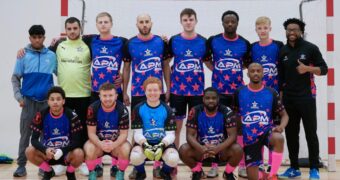



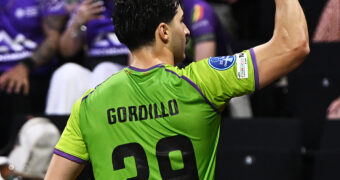
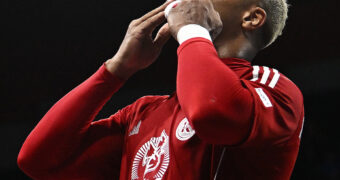
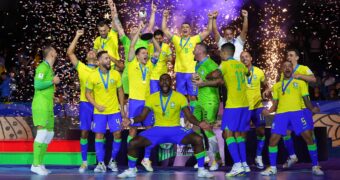
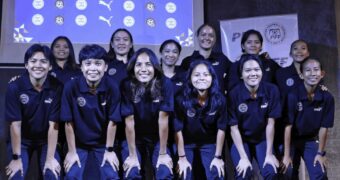
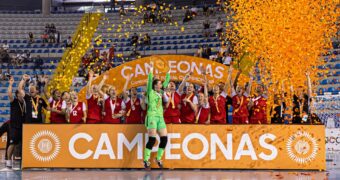
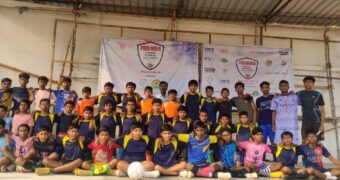





![Validate my RSS feed [Valid RSS]](https://www.futsalfocus.net/wp-content/uploads/2020/01/valid-rss-rogers.png)

